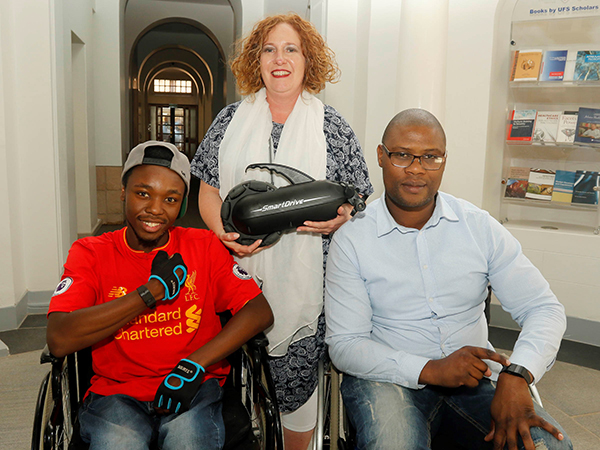Latest News Archive
Please select Category, Year, and then Month to display items
![]()
“A mind that is learning is a free mind and freedom demands the responsibility of learning” – J. Krishnamurti. What is the essence of education in our modern society amid the emerging, unprecedented, present-day circumstances? On 27 November 2020, third-year students from the University of the Free State (UFS) not only sought to inspire the youth in Kestell and bring them messages of hope, but also actively engaged them on how to be equipped with the necessary skills that would help them surf through the rapidly advancing world economics and the changing labour-market demands.
The collaboration with other expert stakeholders created a platform for significant conversation about alternative skills training that is designed to successfully address the current economic needs, thus enabling education to thrive and serve the intended purpose, which would ultimately manifest in effective transformation within communities. The UFS Qwaqwa Campus Community Engagement office coordinated the teamwork, comprising the Free State Department of Social Development, Maluti TVET College, the Free State School of Nursing, AGAPE Foundation for Community Development, Japie Lepele Foundation, the Riverside Finishing School, and Advance Academy.
TVET education allows students to progress in fields that suit them best and at the same time acquire skills needed for the future world of work. Information Technology (IT) students and staff members shared encouraging testimonies of their education experience and employment. The academy presented their finishing school programme to encourage learners to complete their secondary education even after they have suffered some interruptions. Although there are currently many challenges facing education in our semi-rural areas – such as Kestell – that result in lack of access to education and insufficient resources, civil partnerships like these are supporting and enabling communities in their quest to find their own solutions.
SmartDrive devices give UFS wheelchair users more independence
2017-12-01

From the left, are: David Mashape; Martie Miranda, Head of the
Center for Universal Access and Disability Support at the UFS;
and Lawrence Qamba, celebrating the recent acquisition
of two SmartDrive Power Assist devices.
Photo: Johan Roux
Students who make use of wheelchairs at the University of the Free State (UFS) will now be able to move around campus more independently than before. This is thanks to two SmartDrive Power Assist devices acquired by the university.
Accessibility is very important to the institution and with these devices clipping onto a manual wheelchair to make it motorised, students will not have to ask for help that often. It will assist them in overcoming obstacles they face every day.
Different surfaces pose different challenges
According to Martie Miranda, Head of the Center for Universal Access and Disability Support (CUADS), one of the most important advantages of the SmartDrive machines is that it enhances the independence of students. The devices were bought with funds received from the Department of Higher Education and Training specifically allocated for accessibility and infrastructure.
“While the UFS is addressing inaccessibility on its campuses, which will take time, this will help to motorise wheelchairs for wheelchair users to move around more easily. Students can now move around independently without necessarily asking for help, for example, to get up very steep ramps.” Miranda says some surfaces, such as grass and gravel, has its own unique challenges for wheelchair users.
A few years coming
The SmartDrive devices are operated by a Bluetooth watch. By tapping twice on the chair or clapping twice, the motor propels the wheelchair forward and stops when tapped twice, while also braking with one’s hands. The speed can also be controlled by the user. The machines use rechargeable batteries, with a fully charged battery lasting up to 15 hours.
Acquiring the devices was a process of a few years, and CUADS is happy to finally employ them to the benefit of their students. Miranda says the determination and support of Prof Nicky Morgan, Vice-Rector: Operations, and the assistance of Nico Janse van Rensburg, Senior Director: Top Management, were instrumental in buying the devices.